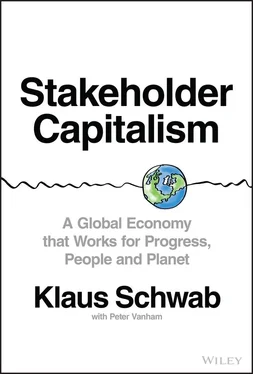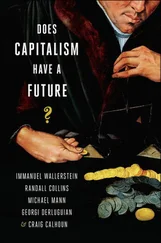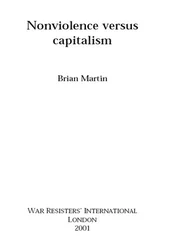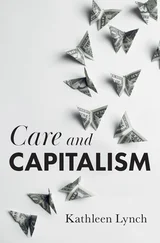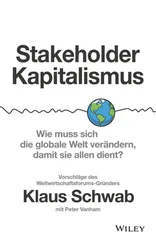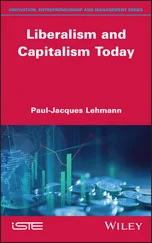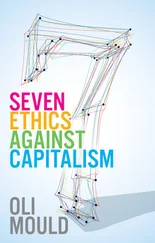Klaus Schwab - Stakeholder Capitalism
Здесь есть возможность читать онлайн «Klaus Schwab - Stakeholder Capitalism» — ознакомительный отрывок электронной книги совершенно бесплатно, а после прочтения отрывка купить полную версию. В некоторых случаях можно слушать аудио, скачать через торрент в формате fb2 и присутствует краткое содержание. ISBN: , Жанр: economics, на английском языке. Описание произведения, (предисловие) а так же отзывы посетителей доступны на портале библиотеки ЛибКат.
- Название:Stakeholder Capitalism
- Автор:
- Жанр:
- Год:неизвестен
- ISBN:9781119756149
- Рейтинг книги:4 / 5. Голосов: 1
-
Избранное:Добавить в избранное
- Отзывы:
-
Ваша оценка:
- 80
- 1
- 2
- 3
- 4
- 5
Stakeholder Capitalism: краткое содержание, описание и аннотация
Предлагаем к чтению аннотацию, описание, краткое содержание или предисловие (зависит от того, что написал сам автор книги «Stakeholder Capitalism»). Если вы не нашли необходимую информацию о книге — напишите в комментариях, мы постараемся отыскать её.
Individual agency:
A clearly defined social contract:
Planning for future generations:
Better measures of economic success: Stakeholder Capitalism: A Global Economy that Works for Progress, People and Planet
Stakeholder Capitalism
Stakeholder Capitalism — читать онлайн ознакомительный отрывок
Ниже представлен текст книги, разбитый по страницам. Система сохранения места последней прочитанной страницы, позволяет с удобством читать онлайн бесплатно книгу «Stakeholder Capitalism», без необходимости каждый раз заново искать на чём Вы остановились. Поставьте закладку, и сможете в любой момент перейти на страницу, на которой закончили чтение.
Интервал:
Закладка:
Figure 2.6 “Earth Overshoot Day” Has Been Taking Place on an Earlier Date Almost Each Year since 1970
Source: Redrawn from Global Footprint Network and Biocapacity Accounts 2019, Earth Overshoot Day.
Consider first fossil fuels, which can regenerate only over millions of years. Even though they can only be used once, coal, oil, and natural gas still account for about 85 percent of the world's primary energy consumption 94and two thirds of world's electricity production. 95In fact, their use has nearly doubled about every 20 years in the past century. Despite calls to phase them out, their production even increased in 2018. It is a statistic that unnerved even BP's chief economist Spencer Dale: 96“At a time when society is increasing its demands for an accelerated transition to a low-carbon energy system,” he wrote in his group's 2019 Statistical Review, “the energy data for 2018 paint a worrying picture.”
It is not only fossil fuels. More broadly, over the past five decades, the use of natural resources tripled, according to the UN Environment's International Resource Panel. 97Their extraction and processing have “accelerated” over the last two decades, and “accounts for more than 90 percent of our biodiversity loss and water stress and approximately half of our climate change impacts,” the organization warned.
These trends coincided with one of increased pollution of at least three sorts: water, air, and soil.
Take first the issue of water. UN Water, the agency coordinating the United Nations work on water and sanitation, estimated that globally 2 billion people live in countries experiencing high water stress, 98often due to climate change. But even when water is available, it is often heavily polluted. Globally, the agency said, 99“it is likely that over 80% of wastewater is released to the environment without adequate treatment,” with pollution often happening because of “intensive agriculture, industrial production, mining and untreated urban runoff and wastewater.” It threatens the access of clean water everywhere from cities to rural areas and poses a great health risk.
Moreover, there is the issue of plastics, whose impact will be felt most dramatically in the coming decades, as the plastic that is currently accumulating in the world's oceans may affect life on land in a myriad of ways. Microplastics have become ubiquitous in the world's water, in part because they take decades to decompose: by current measures, it is estimated we could end up with more plastic than fish in our oceans by 2050. 100The most famous example in popular imagination is the “Great Pacific Garbage Patch” consisting largely of the debris of microplastics in the Pacific Ocean. But the issue is a global one, affecting all of the world's bodies of water.
Second, almost two-thirds of the world's cities also exceed WHO guidelines on air pollution, according to Greenpeace. 101Many of the large metropoles of Asia are so polluted it is unhealthy even to walk outside, 102as many who live or have been there will be able to attest. And third, according to the Food and Agricultural Organization of the UN (FAO), 103soil pollution is a hidden reality all over the world and a direct threat to human health.
This rapid exploitation and pollution also started to wreak havoc on the world's natural ecosystems and threatened to make global warming spin out of control, with major consequences for people in regions hit hard by climatic change and for future generations. Other data also reveal the human impact on the environment.
The UN-sponsored Intergovernmental Platform on Biodiversity and Ecosystems Services (IPBES) concluded in a 2019 report that “nature is declining globally at rates unprecedented in human history,” with species already becoming extinct “at least tens to hundreds of times faster than the average over the past 10 million years.” 104Quoting the research, the Financial Times also wrote that “one million of Earth's estimated 8 million plant and animal species are at risk of extinction.” 105
Another specialized UN agency, the Intergovernmental Panel on Climate Change (IPCC), issued a warning late 2018 that the current path of CO 2emissions would also lead to an unstoppable cycle of global warming—with major disruptions for life on earth—if major reductions weren't achieved by 2030. It said, “Pathways limiting global warming to 1.5°C with no or limited overshoot would require rapid and far-reaching transitions in energy, land, urban and infrastructure (including transport and buildings), and industrial systems.” 106But hopes for even that narrow path to a limited global warming of 1.5°C had all but evaporated two years later. The World Meteorological Organization, another UN-affiliated institution, in July 2020 said that a 1°C warming would already be a reality in the next five years (2020–2024) and believed there was a one in five chance that warming would already reach 1.5°C in that period. 107
There is no one who hasn't experienced at least some of the realities of a changing climate. As I write this, the past two summers have once again been among the hottest on record. 108Even high in the Swiss Alpine town of Zermatt, where I go to walk in summer and where temperatures are usually quite moderate, global warming and extreme weather events are hitting home—literally. The Theodul Glacier is retreating further every year, and when I visited in the summer of 2019, the melting glacier caused flooding in the valley, even though not a drop of rain had fallen in days. 109
Faced with these changes down the ages, people have responded with one simple act: they have started moving. Today, the UN Migration Agency IOM warns that “gradual and sudden environmental changes are already resulting in substantial population movements. The number of storms, droughts, and floods has increased threefold over the last 30 years with devastating effects on vulnerable communities, particularly in the developing world.” 110It expects that the total number of climate migrants alone will by 2050 be as great as the total number of international migrants in the world today, at 200 million people. 111
Business leaders know environmental risks are rising, as they rank them ever-more prominently in the World Economic Forum's yearly Global Risks report. For the first time in 2020, it said, “Severe threats to our climate account for all of the Global Risks Report's top long-term risks.” 112It pointed to the risks associated with extreme weather events, failure of climate-change mitigation and adaptation, human-made environmental damage, major biodiversity losses, resulting in severely depleted resources, and major natural disasters.
We should not take these risks lightly like we did in the 1970s, especially as the next generation is already looking over our shoulder, wondering what legacy we plan to leave. That would be nothing short of a betrayal of future generations.
Indeed, the dangers posed by global warming have become a major worry for the next generation of youth these past few years, as they start to demand more urgent climate action. Inspired to a large degree by peers such as Swedish school student Greta Thunberg, hundreds of thousands of climate activists have been hitting the streets, giving speeches to whomever would listen and changing their own habits where possible. We understand their concerns and for this reason invited Greta Thunberg to speak at our Annual Meeting in 2019. Thunberg's foremost message was that “our house is on fire” 113and that we should act with an utmost sense of urgency.
We hope we will heed the next generation's call to create a more sustainable economic system with more urgency than in 1973. Since Aurelio Peccei's speech, decades have passed. Since then, we failed to act with sufficient results and have, in doing so, worsened the economic, health, and environmental outlook for future generations—and still left many people behind economically. It was Kuznets’ final curse. He had never suggested that our economic system was indefinitely sustainable.
Читать дальшеИнтервал:
Закладка:
Похожие книги на «Stakeholder Capitalism»
Представляем Вашему вниманию похожие книги на «Stakeholder Capitalism» списком для выбора. Мы отобрали схожую по названию и смыслу литературу в надежде предоставить читателям больше вариантов отыскать новые, интересные, ещё непрочитанные произведения.
Обсуждение, отзывы о книге «Stakeholder Capitalism» и просто собственные мнения читателей. Оставьте ваши комментарии, напишите, что Вы думаете о произведении, его смысле или главных героях. Укажите что конкретно понравилось, а что нет, и почему Вы так считаете.
